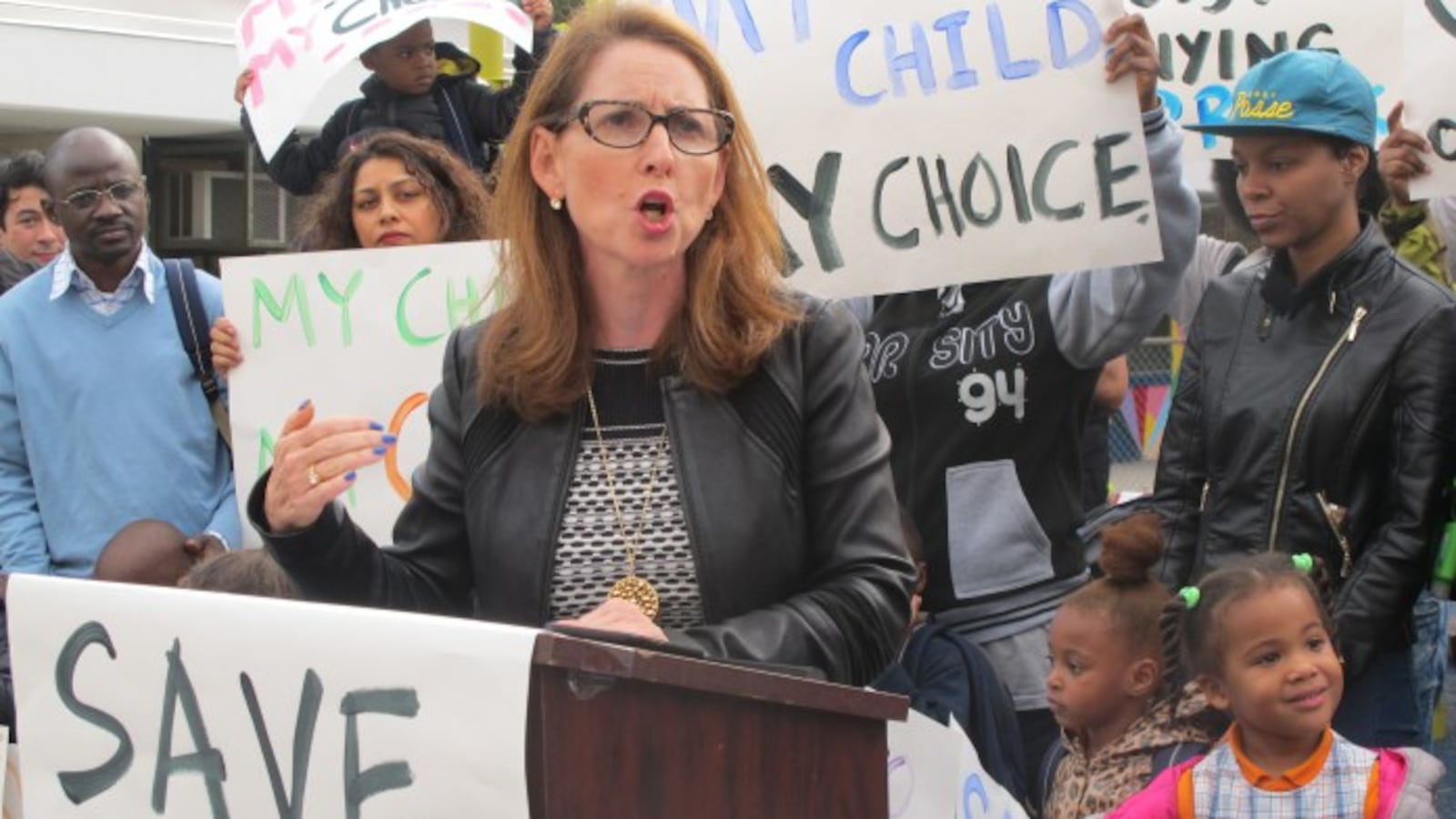New York City’s largest school charter network, Success Academy, has won the 2017 Broad Prize for Public Charter Schools. The announcement comes during an already victorious week for the network, which just won a favorable ruling in a long-standing fight with the city over pre-K.
The Broad Prize, which includes a $250,000 award, goes to a charter network that demonstrates “outstanding academic outcomes among low-income students and students of color.”
The award was announced Monday morning by the Eli and Edythe Broad Foundation and the National Alliance for Public Charter Schools. Success Academy — which serves 14,000 students in New York City across 41 elementary, middle and high schools — came out on top against the two other finalists: DSST Public Schools in Denver and Harmony Public Schools in Texas.
“At the core heart of Success Academy’s incredible academic achievements are its teachers, students and families,” said a statement from Gregory McGinity, executive director of the Broad Foundation. “Their dedication has made it possible for Success to grow rapidly to serve thousands of students, all without sacrificing academic progress.”
Critics have long questioned aspects of Success Academy’s approach, but this win marks the second major victory for the network and its controversial CEO Eva Moskowitz in a matter of days.
On Thursday, a state appeals court ruled that New York City cannot regulate pre-K programs at charter schools. Success and other local charter schools have been battling since 2015 for the right to participate in the city’s universal pre-K program without signing the required contract. Despite initial losses, they won an appeal and the case has now been sent back to State Education Commissioner MaryEllen Elia, who will review the court’s decision.
Announcing today’s win, the 10-member Broad Prize review board singled out some of Success Academy’s achievements.
In 2016, for example, all of Success Academy’s elementary and middle schools placed in the top 10 percent of schools in New York state for advanced academic performance in English, math, and science, according to a press release from the National Alliance for Public Charter Schools. The network’s black and Hispanic students performed better that year, on average, than white students across the entire state of New York. And its low-income students performed better, on average, than non-low-income students across the state in English, math, and science.

